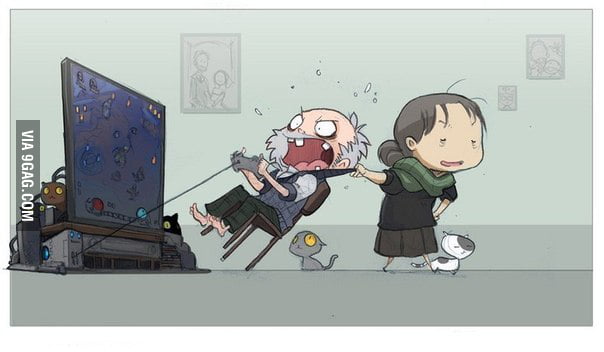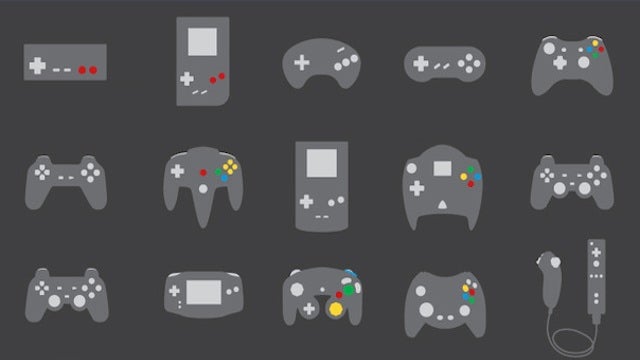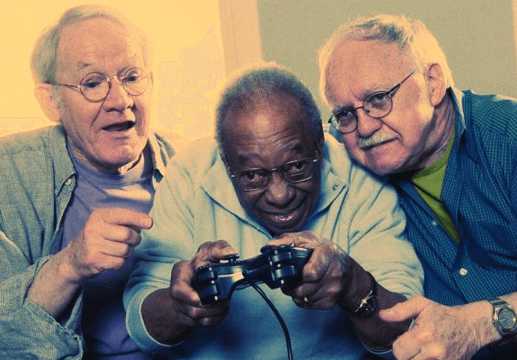The multi-billion dollar gaming industry leads innovation in breathtaking and stimulating ways, but this same innovation leaves the original gamers, the very people who helped lay the foundation for our current experiences, behind. Moving forward at our current pace simply doesn’t leave enough room for the classics, gameplay or price wise.
The source of the problem
Modern video gaming constantly breaks down new walls, testing and overcoming the limitations of previous generations of games and consoles. As a community, we’ve graduated from Atari (1977) to NES (1983) and Sega Genesis (1988), gradually moving all the way up to Wii U (2012), Xbox One (2013), and PlayStation 4 (2013).
Looking back and comparing Atari to a current next generation console leaves one in awe of the long path we’ve tread, much like comparing 1960s television to modern movie magic. Remember when Star Trek featured its fantastical Enterprise hanging on a string before starry backdrops? Immersive graphics today leave that image in the dust. The same goes for looking back on Pong and then jumping into, say, Fallout 4. We’ve come a long way from basic puzzle concepts and mechanics, traversing genres and interactive gameplay to bring brand new experiences to the gamer.
There’s only one problem: What happens to that original generation of gamers when you introduce analog sticks, complex map systems, and complicated depth to character and weapon customization? How does one acclimate to MMO titles after spending hours playing side-by-side with good friends in an arcade? How does one adjust to a great leap in the price to play?
Well, in too many cases, nothing happens. Original gamers, the folks who grew up with gaming’s first consoles, stick to the classics. This is NOT to say that older gamers can’t handle the changes. But why take on the challenge of open world games when Donkey Kong still does the trick? Who needs to spend hours level grinding when increased puzzle intensity alone can save the princess without tripling time and cost? The drive to adapt doesn’t meet with the required motivation if modern gaming appears needlessly extravagant.

The numbers
Pew Research Center released a study that examined the demographics of gamers. This study determined that one in four American adults own a game console, using Xbox and PlayStation as examples. It further broke down the percentages of each demographic, sorting them by:
- Sex
- Race/Ethnicity
- Age Group
- Household Income
- Educational attainment
- Community Type
Media outlets jumped on the sex portion of the study, concentrating on the 42% of women owning consoles trumping the 37% of men as proof of dated stereotypes.
I’d like to bring your attention to the age group portion of the study, which was largely, and regretfully, ignored. Here’s the breakdown of the percentage of American adults owning consoles by age:
- 56% of 18 to 29 year-olds
- 55% of 30 to 49 year-olds
- 30% of 50 to 64 year-olds
- 8% of adults 65 years old and up
Gamer stereotypes often place children and young adults in the gaming demographic limelight. But did you notice how closely older adults follow their passion? Pre-middle aged and middle aged adults love gaming nearly as much. These are the individuals that played in the game arcades of the 80s and 90s as children. While initial attraction to a console system might be connected to children of said adults, many fall into the age bracket immediately following the original gaming generation.
So 55% isn’t a problem, right? Clearly this number competes with younger adults, so no isolation effect can be seen. My true interest, however, goes one step beyond those who were much younger when gaming took off.
The study examined adults eighteen and older, so we’ll do the same by looking at people who would have fit that age bracket during the release of Atari and it’s subsequent console followers.
The older generations
Now let’s jump to the next age bracket, the 50 to 64 year-olds. Those who fall into this category were children to young adults when video game popularity really began to grow. They first tried their hands at Atari systems and came to arcades in spare time as teenagers and young adults. They also had the unique opportunity to play with younger siblings or their children straight away, if not on their own.
But if these folks were the original gamers, the generations that grew up with video games later in life and stood strong on their foundations, then shouldn’t that 30% be higher? While this could be a simple lack of interest in the hobby, I’ve been led to believe that it’s also largely connected to a disinterest in modern gaming specifically.

Think about it this way: this demographic got to experience the very first games the rising industry had to offer. They didn’t simply grow up with these advances as children, but got to live life with and without the existence of video games. They knew a time when such technology wasn’t a given and a time when it became one. They are able to experience a fascination with video games in a way children handed them straight away cannot. This opens up the possibility for a greater love of the hobby. But apparently, that didn’t happen. In cases where it did, that love and passion clearly didn’t stick.
Video games took a while to develop, sticking to basic mechanic formulas for a long time. When home consoles weren’t as common as they are today, people actually got up and went out, quarters in hand, to spend time with their friends and favorite games. Gameplay competition demanded more impressive titles, but without the enormous jumps we make console to console today.

By the time the original Xbox (2001) and PlayStation 2 (2000) hit shelves, controllers had received an extreme makeover. Adjustments had to be made. Children who quickly adapted to the new changes left behind those who had thirty-five and more years of simple controller stick and button mechanics. NES and Playstation controllers had only veered slightly from that path before.
Skyrocketing price tags
I blame this change and those that followed for the gap between gaming age demographics. Innovation kept presenting new, new, new with less and less time in between. The second problem following these changes was that they came with higher price tags. Again, we’re looking at a generation that could turn a handful of quarters into hours of fun. Sure, those quarters added up over time, but not in a manner comparable to dropping $600 on the PlayStation 3 release. That price didn’t include all the titles necessary to really enjoy the experience either, which came at another $40 a pop.

Nowadays, a brand new game on a next generation console runs a player $60, and that’s without additional DLC or Season Passes. Imagine going from a simple arcade trip to dishing out that kind of money on a single game. Adjusting for inflation doesn’t match a quarter to $60 either, so that’s no excuse (though some original consoles beat out our modern ones). The same goes for the original costs of Nintendo cartridges. They were a significantly cheaper hit on your wallet.
Waiting for prices to drop doesn’t solve this problem. In that time, all the new stuff just keeps coming, prices continue to climb (with the exception of the drop between PS3 and PS4 consoles), and there’s never enough time to truly catch up. So why deal with the hassle?
An unavoidable conundrum
Backtracking to the classics to satisfy all those original gamers who haven’t jumped on the Nintendo Wii bandwagon isn’t a viable option. The real money and profit for big companies lies in innovation. There’s a reason PlayStation 3 and Xbox 360 sales didn’t skyrocket upon the release of newer consoles. To continue making what we love, companies have to adhere to the patterns that boost profit margins. That’s simply the way the world works.

Nintendo gets closer to honoring the classics than any other systems and titles, even offering classic controllers to improve experiences for gamers, but their profits can’t compare to Sony and Microsoft. This further shows the impracticality of trying to win back those original gamers. If they haven’t stuck with the video game tide, there’s little to no reason for them to try returning to it.
The original generation of gamers laid our foundations, but we weren’t able to keep their attention in turn. There’s no realistic way to close the gaming demographic gap between older adults and their middle-aged and young adult counterparts. Innovation will keep pulling the new and old further and further apart while upping those pesky price-tags to new heights.








Published: Dec 5, 2015 08:41 am